-
 Univers
Univers
-
 Ebooks
Ebooks
-
 Livres audio
Livres audio
-
 Presse
Presse
-
 Podcasts
Podcasts
-
 BD
BD
-
 Documents
Documents
-
- Cours
- Révisions
- Ressources pédagogiques
- Sciences de l’éducation
- Manuels scolaires
- Langues
- Travaux de classe
- Annales de BEP
- Etudes supérieures
- Maternelle et primaire
- Fiches de lecture
- Orientation scolaire
- Méthodologie
- Corrigés de devoir
- Annales d’examens et concours
- Annales du bac
- Annales du brevet
- Rapports de stage
La lecture à portée de main
Far From the Madding Crowd , livre ebook
224
pages
English
Ebooks
2012
Écrit par
Thomas Hardy
Publié par
Andrews UK
Vous pourrez modifier la taille du texte de cet ouvrage
Obtenez un accès à la bibliothèque pour le consulter en ligne En savoir plus
Découvre YouScribe en t'inscrivant gratuitement
Découvre YouScribe en t'inscrivant gratuitement
224
pages
English
Ebook
2012
Vous pourrez modifier la taille du texte de cet ouvrage
Obtenez un accès à la bibliothèque pour le consulter en ligne En savoir plus
Publié par
Date de parution
17 février 2012
Nombre de lectures
0
EAN13
9781849891653
Langue
English
Publié par
Date de parution
17 février 2012
Nombre de lectures
0
EAN13
9781849891653
Langue
English
Title Page
FAR FROM THE MADDING CROWD
By
Thomas Hardy
P ublisher Information
Published in 2012 by
Andrews UK Limited
www.andrewsuk.com
This digital edition, including artwork, typography and formatting is copyright Andrews UK Limited 2010.
All rights reserved. No part of this book may be copied, or transmitted in any form or by any means, electronic, electrostatic, magnetic tape, mechanical, photocopying, recording or otherwise, without the written permission of Andrews UK Limited.
Preface
I n reprinting this story for a new edition I am reminded that it was in the chapters of “Far from the Madding Crowd,” as they appeared month by month in a popular magazine, that I first ventured to adopt the word “Wessex” from the pages of early English history, and give it a fictitious significance as the existing name of the district once included in that extinct kingdom. The series of novels I projected being mainly of the kind called local, they seemed to require a territorial definition of some sort to lend unity to their scene. Finding that the area of a single county did not afford a canvas large enough for this purpose, and that there were objections to an invented name, I disinterred the old one. The press and the public were kind enough to welcome the fanciful plan, and willingly joined me in the anachronism of imagining a Wessex population living under Queen Victoria; - a modern Wessex of railways, the penny post, mowing and reaping machines, union workhouses, lucifer matches, labourers who could read and write, and National school children. But I believe I am correct in stating that, until the existence of this contemporaneous Wessex was announced in the present story, in 1874, it had never been heard of, and that the expression, “a Wessex peasant,” or “a Wessex custom,” would theretofore have been taken to refer to nothing later in date than the Norman Conquest.
I did not anticipate that this application of the word to a modern use would extend outside the chapters of my own chronicles. But the name was soon taken up elsewhere as a local designation. The first to do so was the now defunct Examiner , which, in the impression bearing date July 15, 1876, entitled one of its articles “The Wessex Labourer,” the article turning out to be no dissertation on farming during the Heptarchy, but on the modern peasant of the south-west counties, and his presentation in these stories.
Since then the appellation which I had thought to reserve to the horizons and landscapes of a merely realistic dream-country, has become more and more popular as a practical definition; and the dream-country has, by degrees, solidified into a utilitarian region which people can go to, take a house in, and write to the papers from. But I ask all good and gentle readers to be so kind as to forget this, and to refuse steadfastly to believe that there are any inhabitants of a Victorian Wessex outside the pages of this and the companion volumes in which they were first discovered.
Moreover, the village called Weatherbury, wherein the scenes of the present story of the series are for the most part laid, would perhaps be hardly discernible by the explorer, without help, in any existing place nowadays; though at the time, comparatively recent, at which the tale was written, a sufficient reality to meet the descriptions, both of backgrounds and personages, might have been traced easily enough. The church remains, by great good fortune, unrestored and intact, and a few of the old houses; but the ancient malt-house, which was formerly so characteristic of the parish, has been pulled down these twenty years; also most of the thatched and dormered cottages that were once lifeholds. The game of prisoner’s base, which not so long ago seemed to enjoy a perennial vitality in front of the worn-out stocks, may, so far as I can say, be entirely unknown to the rising generation of schoolboys there. The practice of divination by Bible and key, the regarding of valentines as things of serious import, the shearing-supper, and the harvest-home, have, too, nearly disappeared in the wake of the old houses; and with them have gone, it is said, much of that love of fuddling to which the village at one time was notoriously prone. The change at the root of this has been the recent supplanting of the class of stationary cottagers, who carried on the local traditions and humours, by a population of more or less migratory labourers, which has led to a break of continuity in local history, more fatal than any other thing to the preservation of legend, folk-lore, close inter-social relations, and eccentric individualities. For these the indispensable conditions of existence are attachment to the soil of one particular spot by generation after generation.
T. H., February 1895
Chapter I
Description of Farmer Oak - An Incident
When Farmer Oak smiled, the corners of his mouth spread till they were within an unimportant distance of his ears, his eyes were reduced to chinks, and diverging wrinkles appeared round them, extending upon his countenance like the rays in a rudimentary sketch of the rising sun.
His Christian name was Gabriel, and on working days he was a young man of sound judgment, easy motions, proper dress, and general good character. On Sundays he was a man of misty views, rather given to postponing, and hampered by his best clothes and umbrella: upon the whole, one who felt himself to occupy morally that vast middle space of Laodicean neutrality which lay between the Communion people of the parish and the drunken section, - that is, he went to church, but yawned privately by the time the congregation reached the Nicene creed, and thought of what there would be for dinner when he meant to be listening to the sermon. Or, to state his character as it stood in the scale of public opinion, when his friends and critics were in tantrums, he was considered rather a bad man; when they were pleased, he was rather a good man; when they were neither, he was a man whose moral colour was a kind of pepper-and-salt mixture.
Since he lived six times as many working-days as Sundays, Oak’s appearance in his old clothes was most peculiarly his own - the mental picture formed by his neighbours in imagining him being always dressed in that way. He wore a low-crowned felt hat, spread out at the base by tight jamming upon the head for security in high winds, and a coat like Dr. Johnson’s; his lower extremities being encased in ordinary leather leggings and boots emphatically large, affording to each foot a roomy apartment so constructed that any wearer might stand in a river all day long and know nothing of damp - their maker being a conscientious man who endeavoured to compensate for any weakness in his cut by unstinted dimension and solidity.
Mr. Oak carried about him, by way of watch, what may be called a small silver clock; in other words, it was a watch as to shape and intention, and a small clock as to size. This instrument being several years older than Oak’s grandfather, had the peculiarity of going either too fast or not at all. The smaller of its hands, too, occasionally slipped round on the pivot, and thus, though the minutes were told with precision, nobody could be quite certain of the hour they belonged to. The stopping peculiarity of his watch Oak remedied by thumps and shakes, and he escaped any evil consequences from the other two defects by constant comparisons with and observations of the sun and stars, and by pressing his face close to the glass of his neighbours’ windows, till he could discern the hour marked by the green-faced timekeepers within. It may be mentioned that Oak’s fob being difficult of access, by reason of its somewhat high situation in the waistband of his trousers (which also lay at a remote height under his waistcoat), the watch was as a necessity pulled out by throwing the body to one side, compressing the mouth and face to a mere mass of ruddy flesh on account of the exertion required, and drawing up the watch by its chain, like a bucket from a well.
But some thoughtful persons, who had seen him walking across one of his fields on a certain December morning - sunny and exceedingly mild - might have regarded Gabriel Oak in other aspects than these. In his face one might notice that many of the hues and curves of youth had tarried on to manhood: there even remained in his remoter crannies some relics of the boy. His height and breadth would have been sufficient to make his presence imposing, had they been exhibited with due consideration. But there is a way some men have, rural and urban alike, for which the mind is more responsible than flesh and sinew: it is a way of curtailing their dimensions by their manner of showing them. And from a quiet modesty that would have become a vestal, which seemed continually to impress upon him that he had no great claim on the world’s room, Oak walked unassumingly and with a faintly perceptible bend, yet distinct from a bowing of the shoulders. This may be said to be a defect in an individual if he depends for his valuation more upon his appearance than upon his capacity to wear well, which Oak did not.
He had just reached the time of life at which “young” is ceasing to be the prefix of “man” in speaking of one. He was at the brightest period of masculine growth, for his intellect and his emotions were clearly separated: he had passed the time during which the influence of youth indiscriminately mingles them in the character of impulse, and he had not yet arrived at the stage wherein they become united again, in the character of prejudice, by the influence of a wife and family. In short, he was twenty-eight, and a b
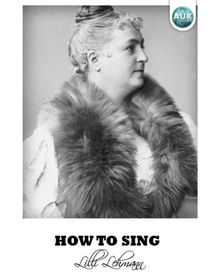
Ebooks
How To Sing
Lilli Lehmann


Ebooks
Memoirs of the Court of Queen Elizabeth
Lucy Aikin

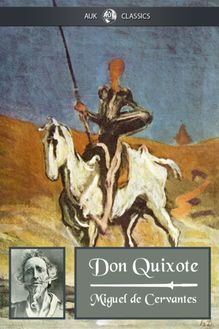
Ebooks
Don Quixote
Cervantes Saavedra Miguel De


Ebooks
Barchester Towers
Anthony Trollope


Ebooks
Wives and Daughters
Elizabeth Gaskell

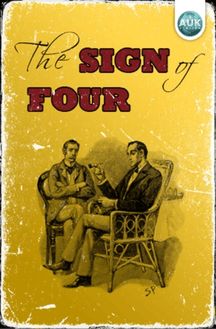
Ebooks
Sherlock Holmes - The Sign of the Four
Arthur Conan Doyle Sir

Ebooks
Romans policiers, polars, thrillers
Sherlock Holmes - The Sign of the Four
Arthur Conan Doyle Sir
59 pages
English
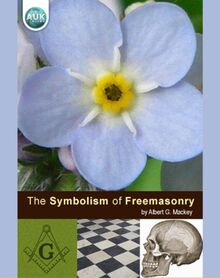
Ebooks
Symbolism of Freemasonry
Albert Mackey

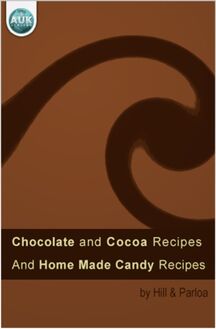
Ebooks
Chocolate and Cocoa Recipes
Maria Parloa

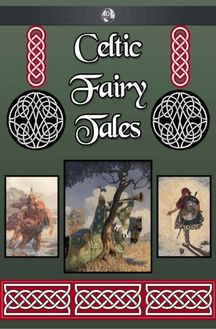
Ebooks
Celtic Fairy Tales
Joseph Jacobs


Ebooks
Henry VIII and his Court
Luise Muhlbach

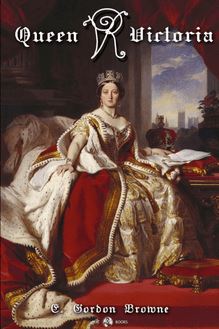
Ebooks
Queen Victoria
Gordon Brown E

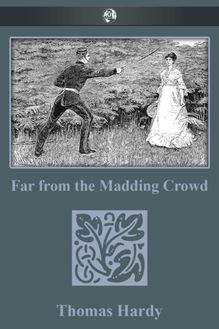
Ebooks
Far From the Madding Crowd
Thomas Hardy


Ebooks
History of London
Walter Besant


Ebooks
Dracula
Bram Stoker

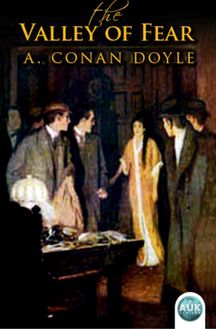
Ebooks
Sherlock Holmes - The Valley of Fear
Arthur Conan Doyle Sir

Ebooks
Romans policiers, polars, thrillers
Sherlock Holmes - The Valley of Fear
Arthur Conan Doyle Sir
84 pages
English
-
 Univers
Univers
-
 Ebooks
Ebooks
-
 Livres audio
Livres audio
-
 Presse
Presse
-
 Podcasts
Podcasts
-
 BD
BD
-
 Documents
Documents
-
Jeunesse
-
Littérature
-
Ressources professionnelles
-
Santé et bien-être
-
Savoirs
-
Education
-
Loisirs et hobbies
-
Art, musique et cinéma
-
Actualité et débat de société
-
Jeunesse
-
Littérature
-
Ressources professionnelles
-
Santé et bien-être
-
Savoirs
-
Education
-
Loisirs et hobbies
-
Art, musique et cinéma
-
Actualité et débat de société
-
Actualités
-
Lifestyle
-
Presse jeunesse
-
Presse professionnelle
-
Pratique
-
Presse sportive
-
Presse internationale
-
Culture & Médias
-
Action et Aventures
-
Science-fiction et Fantasy
-
Société
-
Jeunesse
-
Littérature
-
Ressources professionnelles
-
Santé et bien-être
-
Savoirs
-
Education
-
Loisirs et hobbies
-
Art, musique et cinéma
-
Actualité et débat de société
- Cours
- Révisions
- Ressources pédagogiques
- Sciences de l’éducation
- Manuels scolaires
- Langues
- Travaux de classe
- Annales de BEP
- Etudes supérieures
- Maternelle et primaire
- Fiches de lecture
- Orientation scolaire
- Méthodologie
- Corrigés de devoir
- Annales d’examens et concours
- Annales du bac
- Annales du brevet
- Rapports de stage





